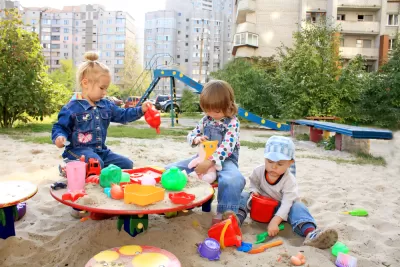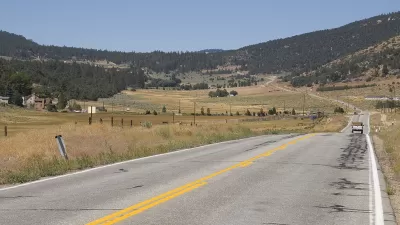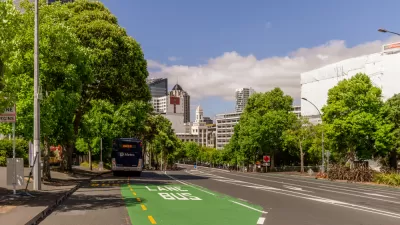A recent study of preschoolers shows that small children are intuitive urban planners—if anyone ever listens.

Christina Ergler shares news of new research from New Zealand into the intuitive powers of planning and design found among the lives and opinions of preschoolers and calls for small children to be included among the voices contributing to public planning and design processes.
Ergler explains the methodology of the study, which involved 27 children participating in a variety of activities, including mapping and neighborhood walks. The researchers identified among the children priorities on health services and facilities, public safety, and a concern for non-human lives.
"The children not only created child-friendly cities, but care-full ones that work for all people, animals and plants," writes Ergler. "Their model cities were safe, socially and physically connected, with destinations, services and amenities available which people of all ages and abilities could get to safely."
FULL STORY: Young children are intuitive urban planners — we would all benefit from living in their ‘care-full’ cities

Montreal Mall to Become 6,000 Housing Units
Place Versailles will be transformed into a mixed-use complex over the next 25 years.

Planetizen Federal Action Tracker
A weekly monitor of how Trump’s orders and actions are impacting planners and planning in America.

DARTSpace Platform Streamlines Dallas TOD Application Process
The Dallas transit agency hopes a shorter permitting timeline will boost transit-oriented development around rail stations.

Study: 4% of Truckers Lack a Valid Commercial License
Over 56% of inspected trucks had other violations.

Chicago Judge Orders Thousands of Accessible Ped Signals
Only 3% of the city's crossing signals are currently accessible to blind pedestrians.

Philadelphia Swaps Car Lanes for Bikeways in Unanimous Vote
The project will transform one of the handful of streets responsible for 80% of the city’s major crashes.
Urban Design for Planners 1: Software Tools
This six-course series explores essential urban design concepts using open source software and equips planners with the tools they need to participate fully in the urban design process.
Planning for Universal Design
Learn the tools for implementing Universal Design in planning regulations.
City of Mt Shasta
City of Camden Redevelopment Agency
City of Astoria
Transportation Research & Education Center (TREC) at Portland State University
US High Speed Rail Association
City of Camden Redevelopment Agency
Municipality of Princeton (NJ)





























